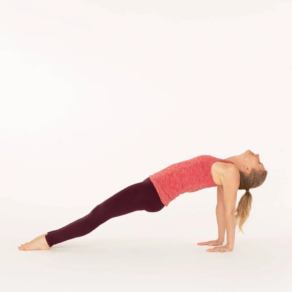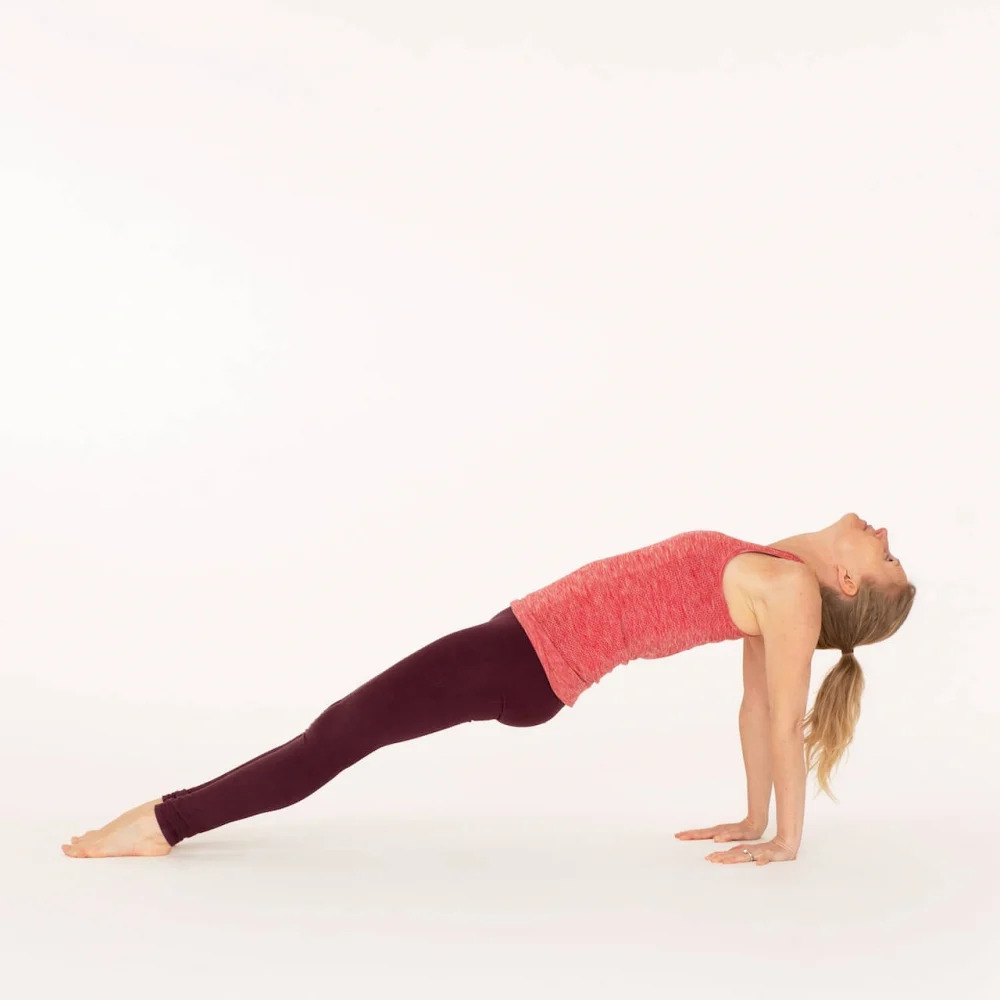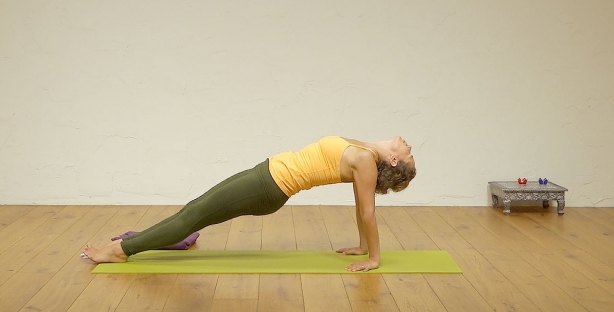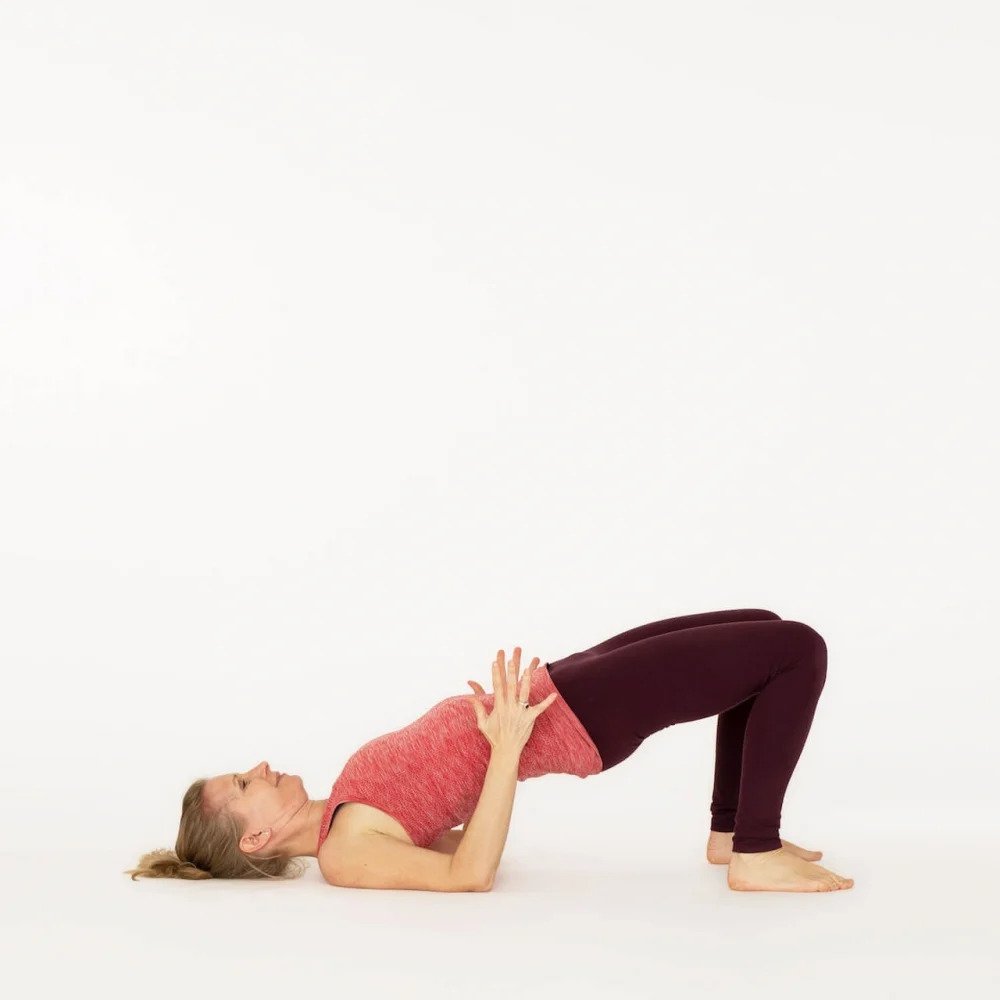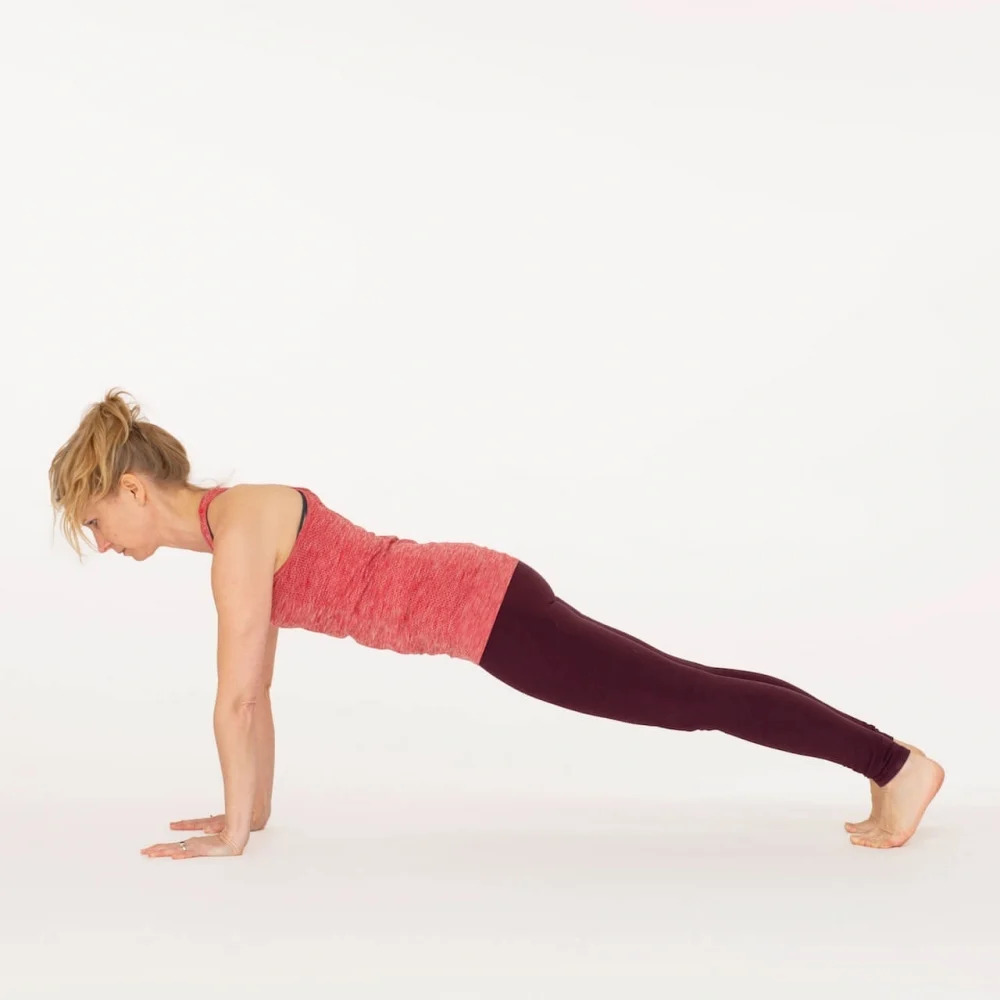Step by step
- Sit with your legs outstretched in front of you in Dandasana.
- Place your hands a little behind your hips with the fingers pointing towards the toes, point your toes.
- Roll your inner thighs in, draw your belly in and up, and as you inhale, lift your hips up as high as you can, keeping your chin to your chest.
- Firm your shoulder blades on your back to help lift your chest up.
- When your chest is lifted you may choose to bring your head back.
- Keep your chin tucked when you bring your head back, to the point where you can’t keep it tucked anymore. Then gently release your head.
- Alternatively, if this feels too much for your neck, keep your head up and your chin towards your chest.
- Stay here for about 5 breaths, then as you exhale, lower your hips back down into Dandasana.
Beginners’ tips
- If you find this too challenging, bend your knees and lift up into a reverse tabletop.
- Find a hand position that suits your shoulders: fingers point forward or away from you
- Engage your gluteus muscles (buttocks) to support you in this pose.
Benefits
- Stretches the front of the shoulders, the chest and the front of the ankles.
- Strengthens the arms, core, legs and back.
- Excellent counterpose for Chaturanga Dandasana.
Watch out for
- Be mindful of your neck – if there are any injuries or existing weaknesses in your neck, keep your chin to your chest.
- Keep your wrists directly under your shoulders in this pose.
Variations
- Try moving dynamically between Purvottanasana and Dandasana a few times – creating a swinging action. Keep pressing through the hands so your hips remain off the floor in Dandasana. You can also place your hands on blocks for this variation.

